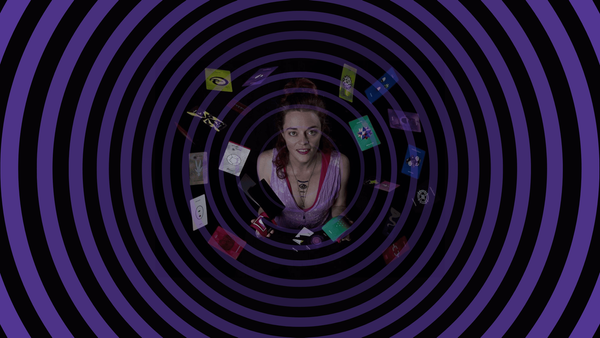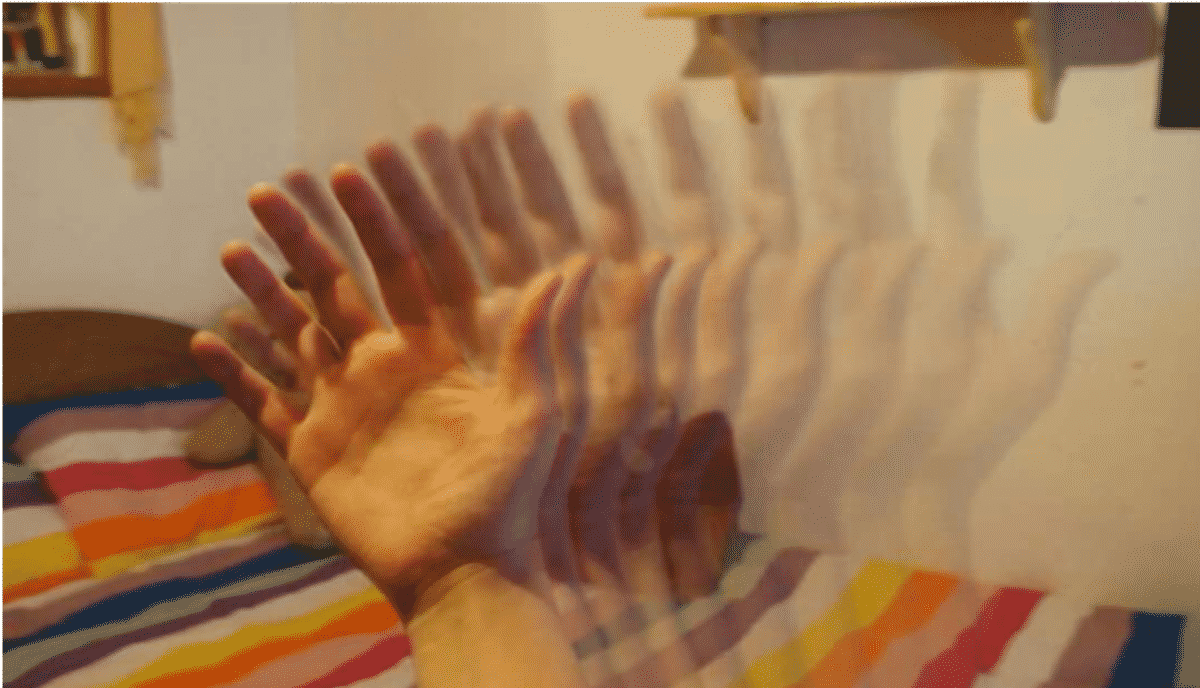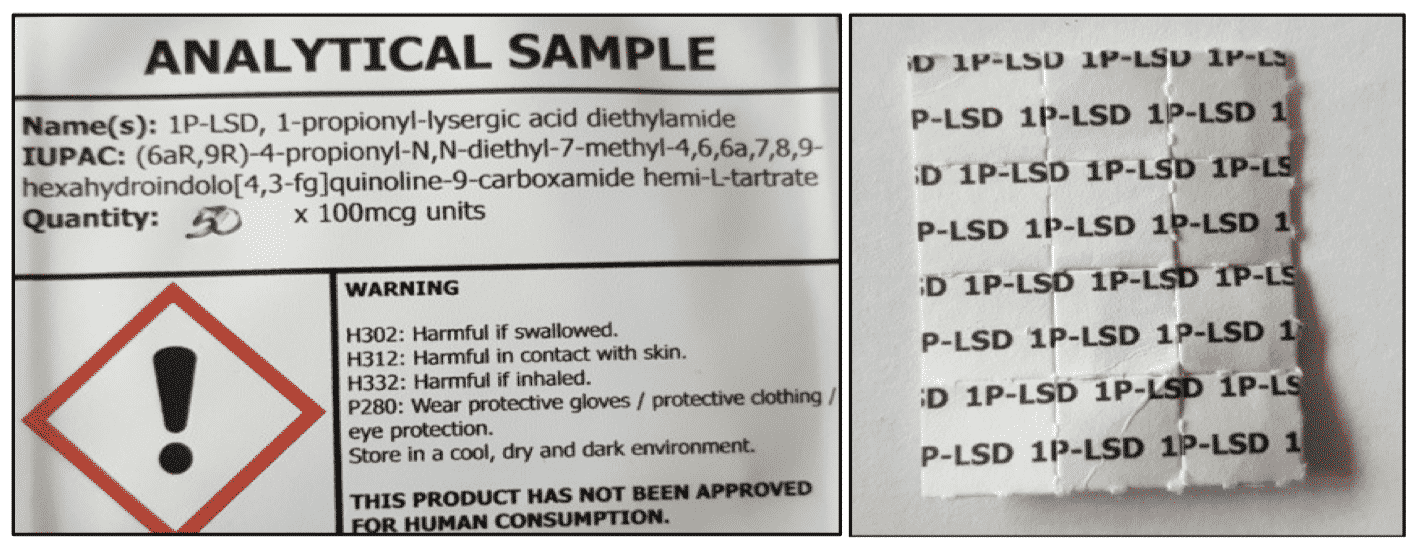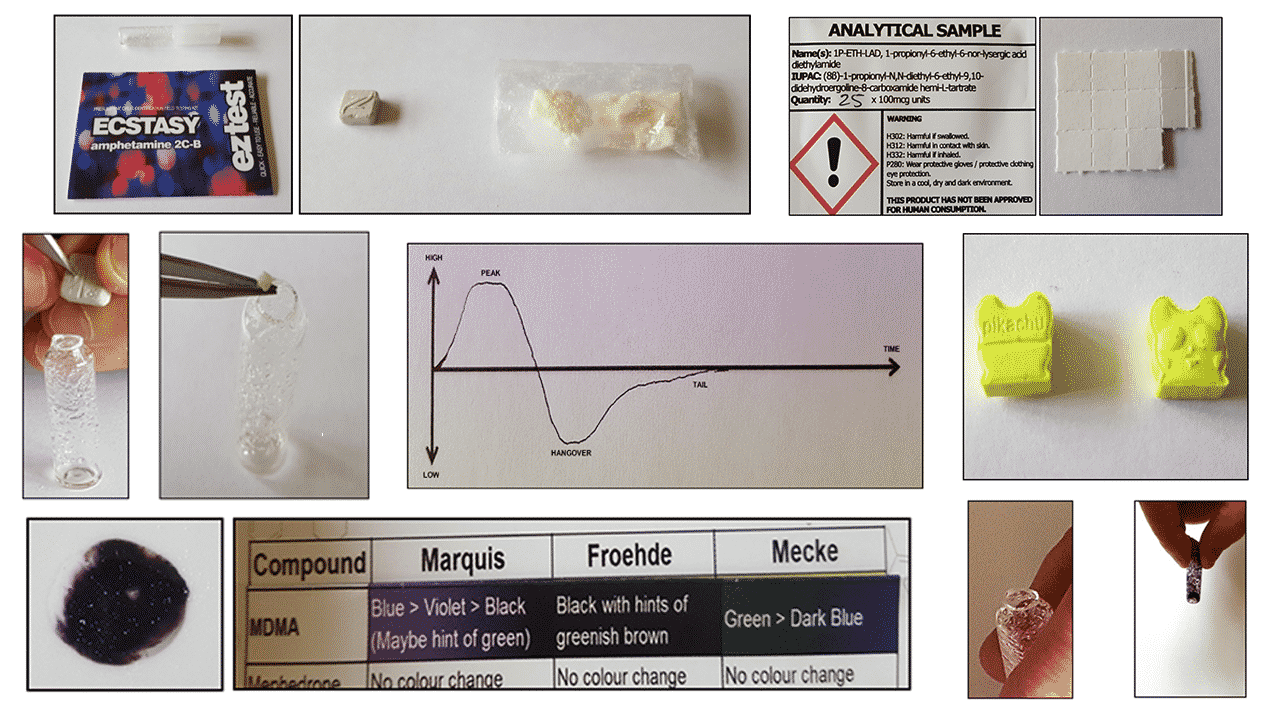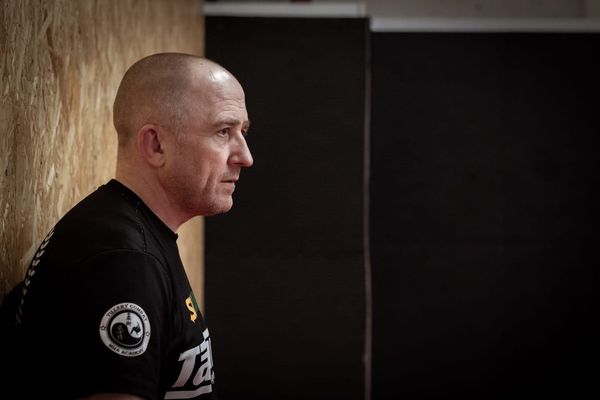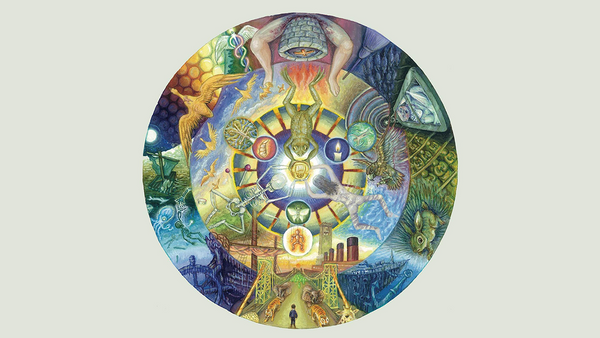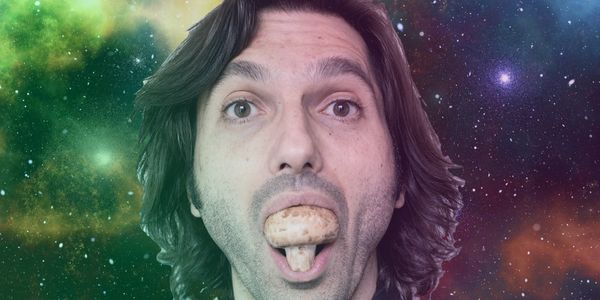Martijn Schirp • • 29 min read
MDMA Therapy: Tom Shroder & Nicholas Blackstone On Finding Your Inner Healer
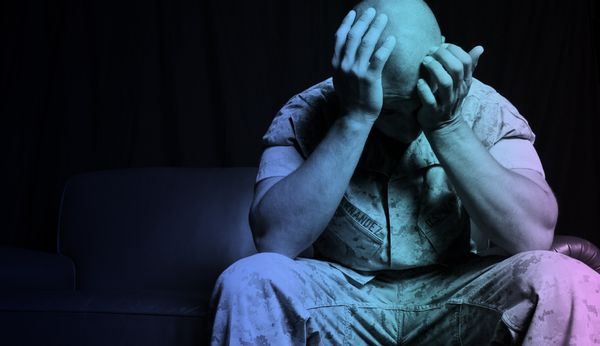
In our second episode of the HighExistence podcast we talk with Tom Shroder and Nicholas Blackstone. Tom is the author of Acid Test, LSD, Ecstasy and the Power to Heal, a truly phenomenal book about the potential of using psychedelics as medicines, told through the lives of Rick Doblin, who we had on our first podcast, Michael Mithoefer, a psychedelic therapist and Nicholas. Nicholas is a former marine who shares his story about the MDMA therapy that enabled him to go deep inside and confront the demons that haunted him after heavy combat in Iraq.
Jordan and I had a wonderful conversation about how this important book came to life, why legalising psychedelics could help millions of people and the importance of viewing MDMA as a medicine.
Listen to the podcast here (or read the transcript below!):
Download and subscribe here on iTunes (we would love a review!):

(or download directly / direct rss feed)
MDMA Therapy Transcript:
Jordan: This is Jordan Lejuwaan and I am here with Martijn Schirp, from the High Existence podcast. Today we are speaking with Tom Shroder, the former editor of the Washington Post magazine, where he oversaw two Pulitzer Prize winning feature stories. His most recent book published in September, the name of which is Acid Test: LSD, Ecstasy and the Power to Heal. This book is an awesome story about the resurgence of research into medical use of psychedelic drugs and the people behind it.
His earlier book, Old Souls is a classic study of the intersection between mysticism and science.
We also have on the show Nicholas Blackston, who is a former Marine and a participant of the clinical trial of MDMA therapy for PTSD. Nick joined the Marines out of high school and saw combat in the Iraqi cities of Fallujah and Ramadi. He suffered severe Post Traumatic Stress Disorder until MDMA therapy allowed him to find the roots of his disorder and heal himself. His story is told in Tom’s book, Acid Test.
So thank you guys for joining us.
Tom: Thank you so much for having me.
Nick: Thanks for having me.
Martijn: Well, Tom, could you tell us a little about the story of Acid Test, how it came to be and what it is about?
Tom: Well, there is kind of a long back-story to how it came to be. It’s one of those weird accumulations of coincidences. When I was in college back in the early 70’s, I got to be interested in psychedelics through some personal experiences that I had. They seemed to produce experiences that had some lasting value, they weren’t just about “getting high” or anything. It actually helped me to improve as a person.
I’ll just give you one example. I took some mushrooms and as they began to take effect I began to become anxious. That anxiety began to ratchet up and I obsessed about all of these things that I was worried about, and not just things in the immediate present but also things that were a week away and then into the deep future. I began to see all of that worry and fear as this weight, a physical weight I felt on my body.
As the mushroom effect started to accelerate, I suddenly had this vision of this boulder on my chest and I could almost not breathe. Then I saw that I was actually struggling to hold the boulder to my chest. So here was this great oppressive weight that I was trying to keep holding, and all I had to do was open my arms and it would fall away. For the rest of my life, I’ve been aware to a certain extent, even to a large extent, all of these negative emotions that we have are a choice, and we expend great energy to have those negative emotion, and you have it within your power to let go.
It has been of immense value to me, and it isn’t always easy to do but because I had that vision and because the nature of psychedelics are not of intellectual thinking, (it’s easy to have an intellectual thought that we are making choices to feel a certain way) when you saw it as a concrete reality, and you saw the weight as a boulder and your arms holding it, and you can open your arms and feel it fall away, that made me know for a fact that this was true. Thus, I was able to work on it as an individual.
OK, that was the background, I was interested in psychedelics.
I went to University of Florida, but I lived in Sarasota and I was home on Spring Break. I saw somewhere, maybe there was a blurb in the local paper, or maybe I was just driving around, and it was about this hippie who was building this magnificent house, with natural stone and timber and huge stain glass window that he’d commissioned. This really fantastic house and a comment about the philosophy of the house made it clear to me that this house was him trying to take his insights taken from LSD trips and make them into concrete reality; to put them into normal life. Because that’s the thing, if you think that you are having insights during a psychedelic experience, the real question is: is that insight really worth something going forward in everyday life? He was explicitly trying to use what he had learned doing psychedelics into the building and execution of this house.
I found that very interesting and I was a student journalist, I was the editor of my college newspaper. I thought it would be interesting to write a feature article about this guy.
I went out and I spent a day with him and I wrote the article and it ran in the paper. I didn’t think much of it, until again, 10 years after I had been out of college, I was the editor of the Miama Herald’s Sunday magazine, Tropic, and I saw a little notice in the Tampa paper that there was this sort of perpetual college student there who was claiming this new drug, called Ecstasy, as the future of Psychotherapy.
They have a picture of the guy, and I am thinking, “Oh my god, that’s the same guy I met in the woods that day” and it was, so I assigned a reporter to go do a cover story on him. I think the headline was “A Timothy Leary for the 80’s”. That ran and it was a really interesting story, and he was kind of a wild man in there, more or less an outlaw at that time, and this was just at the moment where they were going to put MDMA or Ecstasy on Schedule 1, along with LSD and other psychedelics and heroin, and make it illegal.
Then another 15 years go by and I’m the editor at the Washington Post Magazine and I am looking at The New York Times and there is a small story about how Harvard is doing the first clinical research with psychedelic drugs since they booted Tim Leary out the door. I’m reading a story and halfway down I see it is sponsored by an organization called the Multidisciplinary Association for Psychedelic Studies, and the director and founder of that is a guy called Rick Doblin, who happens to be the same guy as the hippie in the woods and the Tim Leary for the 80’s.
Jordan & Martijn: [Laughter]
Tom: At that point, I just said, “Ok, this is too much. This time I’m going to do the story myself”. So I called him up, and I was shocked to discover that he not only remembered me, but he had both, the story I had written in college and the story we had done in the Tropics magazine, on his desk, at that very moment I was talking to him, because he had just made a presentation to his Board of Directors, his point being that his image had come a long way. He went from this outlaw hippie, to someone who was sponsoring a study at one of the preeminent institutions of higher learning in the world.
Interestingly, I think Rick had overestimated how far his image had come, because while I was reporting the story the administration of Harvard’s psychiatric hospital, where the research was going to be done, changed hands. There was a new president, and that new president took one look at Rick and said, “we’re not taking any of his money. We don’t want anything to do with this guy.”
So there was still this huge stigma, and that would become the story. Even though the science had advanced, where it was quite clear psychedelics were safe to use in clinical settings and they were potentially valuable, it was still this uphill battle. That struggle to leave the stigma behind and explore the dramatic potential that these drugs have for therapy, that’s really the story that’s told in Acid Test.
When they cancelled the research at Harvard, there was this ongoing research program that Rick had managed to get started with a psychiatrist named Michael Mithoefer in Charleston, South Carolina. He was using MDMA to treat PTSD in largely female victims of rape and sexual abuse. I went down there, and I was just floored at how successful this therapy was. I interviewed a lot of the participants, whose lives had basically been destroyed by PTSD, and I listened and saw the tapes in their therapy session, and I saw the moments where they had these blinding flashes of insight, and their healing. I was so impressed with it and I wanted to write a book about it, but I also knew there would still be some skepticism among mainstream publishers. At this point, the wars in Iraq and Afghanistan had begun, and already, we were aware of this huge problem we were going to have of vets who were coming home, either with physical injuries, but also with Post Traumatic Stress Disorder, that was going to be this crippling, horrible problem.
I knew that Michael Mithoefer and Rick Doblin were planning to have second trial, using MDMA to treat PTSD from combat, and I thought that’s a great opportunity to sell a book idea because everybody in this country knows the sacrifice we are asking of these often young people, whom we are sending to fight our wars for us. So the fact that this therapy might help this really horrendous problem is something that even the main stream is going to have trouble ignoring. So that’s the time to really present this and that’s what I did.
But I needed to be sure that I had somebody that was willing to come out in front of the public and tell their story thoroughly, of getting PTSD and what it did to them, and allowing me to observe their therapy, and I knew that it was going to have to be somebody with tremendous courage. First of all, PTSD makes you do horrible things. Part of the problem is, you hate yourself, and you feel like a monster. Then, imagine revealing all those things that had been torturing you, those things that make you feel like a monster, then letting someone observe the most intimate possible parts of your therapy. Justifiably, I was worried no one was going to want to do that, and then I got into contact with Nick and he felt so strongly that this had helped him that he felt like he owed it to his comrades from the war to put himself out on the life. Maybe they could get the same kind of healing that he had.
Jordan: Nick, could you walk us through a bit of your background, as well as your preconceptions and your first experience of the MDMA therapy and how it helped you?
Nick: Yes. Like he said before, I was in the Marine Corps and joined right after high school. Born and raised here in Paducah, Kentucky. Was in the Marine Corps as an infantry contract and became a machine gunner, and then when I was put into 1-6 Weapons Co., I ended up going off to my first deployment to Fallujah, which wasn’t that bad, [Laughter] compared to my second deployment in Ramadi. Ramadi was a hellhole, a literal mine filled with explosives buried under roads and enemy. You never know where they would come from. When they did pop out and attack you, they would just pop off their black mask and blend right into the public.
Being in constant fire-fights everyday, I was the lead machine gunner in my platoon, and I was right there in the shit, as you would say, all the time.
When I got back from my second deployment, it wasn’t until about six months later that I started noticing some issues. Actually the day I got back, that day, I had a little breakdown. I wanted to go to the beach, with my mother and my fiancé at the time, now my wife, and we went to the local beach in Camp Lejeune. They happened to be shooting some artillery out into the ocean and every time the concussion went off, I would just be sucked back into the vehicle that I was in when I got blown up in Iraq, in Ramadi. I just kept experiencing it.
Every time they fired a shell, every time a concussion would go off, like * SHUWMP *, I would be back in the vehicle, and I am trying to drive at this moment, so I pulled over to the side of the road and I broke down, crying and screaming, and I was yelling at the enemy for some reason, I don’t know why. My mom and my fiancé just put their hands on my shoulder, they didn’t really know what to do.
To make a long story short, I ended up getting some help with the Deployment health center there, and they put me on Zoloft and Seroquel, for sleep, and give you a one hour talk therapy session, which isn’t really enough. Needless to say, the medicine was inadequate and me feel more like a zombie than anything. They really do have a problem on their hands with so many people coming out with PTSD.
Once I got out of the Marine Corps in 2008, I felt a little bit better, I guess, just to be out of the uniform, but once I got to school, a lot of the issues started coming up. I started suffering from nightmares, having these night terrors and waking up in puddles of sweat and I was full of rage. I could snap in an instant. My wife could simply say “I’m starving” and I would blow up on her and say, “You have no idea what starving is”. I’d turn into this monster, and a lot of the time I’d be able to see myself, almost like third person, watch myself, watch how I was being, and I couldn’t really stop myself. There wasn’t anything anyone could say, or I could say, that would get through to me.
While I was in Ramadi, my vehicle was attacked with an RPG (Rocket Propelled Grenade) and it hit us and my vehicle was blown up, my driver was blown up, and I took shrapnel to my butt and legs, and a little bit to my left testicle. I would relive that experience of what happened, multiple times a day. Just going over what happened in my head.
I was done with the pills. When I started having issues, while I was going through school, when I was going to the VA, they gave me the same pills, the same one hour talk therapy session. I wasn’t on that as long as I was on the medicine while in the Marine Corps.
At the time, I did remember my one experience smoking marijuana, and it had actually helped. I was able to smoke while over seas, safely, and it was after I had gotten blown up, it was around February time the following year. I just remembered staring out into that city, and every day I would suit up and stand at those walls, like a gladiator about to go into a coliseum and you wouldn’t know if you would walk out of those gates. At that time, it was night, and I smoked, I looked out at the city and I was at peace, and I was able to fall asleep at peace. I just remembered that inner peace.
I found that smoking helped with the symptoms, but after a while I ended up having issues. I went online and I ended up finding a video, a woman, talking on CNN about her involvement with a research study, where they were giving MDMA therapy to treat her PTSD, and she was talking about how much it helped her.
I really was at the end of my rope. I was suffering from suicidal issues, a lot, because you feel hopeless, there’s nothing that can get through to you, there’s nothing that can help. All your other brothers and sisters are suffering as well, and they don’t even want to talk about it, and they’re committing suicide, and you have this hopeless feeling.
Luckily, I found MAPS, the research study they were doing, and it happened to be in Charleston, South Carolina. I was living in Summerville, which was just north of there. I called, and called, and called, and kept leaving messages until eventually, I was very lucky and got in. Honestly, when it comes to medicines and drugs, I didn’t really trust anything that was chemically concocted by man, I was already fed up with pills. So I wasn’t too sure about MDMA.
I had tried mushrooms once before. It was during that time that I was looking for alternative help, so I was very familiar with the psychedelic experience.
When I took MDMA for the first time, it was somewhat similar to that dissolving period that occurs, and I had already talked to Michael and Annie Mithoefer, the therapists who administer the drug, a couple weeks before about my story, and they prepared me for what I was going to be experiencing. The first time I experienced it, however, this wave of anxiety came over me and I heard this voice inside reminding me to breathe. Michael Mithoefer had told me before to remember my breathe, but it was something during that experience, I really felt it! As Tom had said before, it’s not something intellectual to be understood; you really feel it.
I never tried to describe it before but I can attempt to. Whenever I would try to breathe, it would pull me back to the center or the now moment, however you want to say it. Whenever you are in the future, you always seem to be concerned with things that haven’t even happened. When you in the past, you are worried about things you can’t even change. With PTSD, a lot of times you get pulled to the past into the traumas you went through.
I really felt like I was at the center of some circle, equal distance in circumference, and I could see everything, with no judgment. I was on the center. If I tried to move out of the center, I would lose my balance and spin into this kind of chaotic moment. I really understood the power of my breath and even after the sessions were over, I noticed that it wasn’t just something that was under the influence of the drug. It was a power that I had innately, everyone does, by pulling yourself back to the center with your breath, and pushing away that fog that comes from being in the past or the future.
Martijn: Right.
Nick: I had a total of 6 sessions of MDMA therapy and the first three were blind study. They didn’t know what dosage I was getting. If you were getting the low or medium dose, you could choose to stay in for another three session of the full dose, and that was my case. I was only getting 75 milligrams in the beginning and I chose to stay in for another three sessions. Whenever I would have the 125 milligram dose, I had the experience that my whole body was on fire, and that I was being taken apart and being put back together and that I’d lose my mind, and get back together. But the whole time I am just laying down, with eye shades on, listening to music. I wasn’t freaking out or anything. I was inward and calm and going through this experience.
I realized that the burning sensation had to do with me being on fire when we got blown up, when we were in those flames. The MDMA therapy really helps you pull these experiences forward, to where you process them without fear. In the past I would talk about these things and if I tried to tell you about them, I’d start panicking, because the mind puts the body back into that situation.
With all the different traumas that I experienced, it helped me to learn from them and process them as information and really feel like it is in the past. To be able to talk about it, it really does show you that it helps you put it in the past. There is nothing that can erase the things you see in combat. Those images will always be burned, pretty much, into my soul, but they no longer affect me to where I am debilitated. I can function now, and I feel like I regained that part of myself that I had cut off, the part of myself that thought was a monster, useless in America, only useful for killing. I was able to change my perspective on that, to see myself as a whole.
Those things that I did over there, I mean, they were what they were. I didn’t choose to kill people. I was in a situation where I had to kill or be killed and when you only have those choices, and you are trained to make the decision to always fight, never quit, that is the hand you’ve been dealt.
A lot of it is about forgiveness. Forgiving those things, and seeing the higher perspective, which is hard to explain, but the experience really made me see that, and feel that.
Jordan: Wow, thank you for sharing that.
Martijn: Wow, it really makes sense. What a story! With all of these experiences and altered states of war, I am really glad you got the MDMA therapy and got better. You feel like you are completely cured now or do you feel like you could use another session?
Nick: Well, I tell you there are times where I wish that I could go back for just one session. We all have things that come up into our lives, our own difficulties, but I have a child coming into the world now, with my wife, and she suffers from a genetic disability that has no cure, called Friedreich’s Ataxia, which is kind of like MS, so she is slowly degrading. That’s kind of hard when you are trying to recover from being exposed to death and chaos through combat, and you have to watch the one you’re most in love with in this world slowly wither away. It’s kind of tough.
Of course, it would be great to have more sessions, but it’s illegal, and like I said, you can never forget the things you went through. I can talk about those things and share those experiences much better than before, but I am not completely free of anxiety. I realize I have had anxiety all my life about things, but understanding the power of my breathe has really helped me to use my breathe, instead of popping some anxiety pill.
The other day, I wasn’t on anything, I was staring out the window, and I had this experience like flames were crawling up my back. I had never had that experience except for when I was somewhat on fire when I was in the Humvee getting blown up and when I was experiencing the fire when I was on the MDMA, but I was just staring out the window and it really felt like flames were crawling up my back and shoulder. I had my bathrobe on and I threw it off real quick, to look for a fire, but there wasn’t anything there. I couldn’t understand what happened.
I‘ve had flashbacks, these visual daydreams, that my mind gets lost in and my body feels it’s real, but nothing to where I’ve just been sober and felt like I was on flames. Obviously, there are a lot of unresolved things.
In my very first session, I forgave myself for the idea that I was some monster, and I realized how important that part of myself was. I am alive, and a lot of my brothers are alive because of that part of me. Once I was able to calm that monster down, and realize I’m not in war, life’s not threatened, I could really integrate as a person and have that healing experience.
Tom: I was just going to say that there is a scientific correlate to what Nick’s talking about here, and sort of a model for how MDMA helps. The brain has a normal way for building memories, and the senses bring in all the information about an experience…
[Tom’s signal was broken up here]
Tom: …Then after processing the material, it sends it back down to the lower brain, where it gets stored as memory. But the theory is, that in a traumatic situation, like rape or combat, that it overwhelms the brain’s ability to send that information up for processing, it short circuits that, and it gets sent down to be stored as, sort of, “unresolved memories”, and everything gets stored in, including crippling fear and anxiety, that you cannot deal with in the moment. You have to act in a survival mode…
[Again, weak signal]
Tom: …It’s like a car alarm, and no one can shut it off and that is sort of like the symptoms of PTSD. The hyper-alertness, you’re always on guard, and plus, your brain is regarding the images in your brain as a threat. Another part of you brain acts as a guard to keep those memories stuck in the basement, and yet it’s not a perfect seal, so it’s more like a poison.
In brain scans, what they’ve discovered, MDMA quiets the amygdala, which handles the fear response, that’s sealing the unresolved memories away. The feeling people talk about while in therapy with MDMA is “I feel protected”. Suddenly, they feel like they don’t have to be afraid, so the amygdala can let its guard down and the unresolved memories can then bubble up. People also have these enhanced memories, and people can revisit these traumatic memories without that fear reaction that has been causing all of their symptoms. So this allows all the memories to go up and be processed and that’s where all the insights come in.
You heard Nick say that he was able to look at this stuff in a completely different perspective, and it wasn’t so fearsome. It’s not like the memories disappear, they’re still horrible occurrences, but they’re not running their lives.
Martijn: Jordan, do you remember your first ecstasy experience? Did you feel so safe?
Jordan: Definitely lovey-dovey. Hard to say, my first one was a pill that was probably mixed with some amphetamine. [Laughter] Frankly. My first couple of experiences was all at music festivals or concerts, or just being out there and using MDMA, as it’s mostly used today in popular culture, for partying.
Tom: Which, it is worth emphasizing the point; it’s rarely pure MDMA that you buy just on the street. It can be mixed with any number of things, which can be dangerous.
Jordan: Yea, just because it’s yellow crystal doesn’t mean it’s “Molly”, at all. Right after those few, initial experiences, I finally closed my eyes at one of these outdoor events and it was like, “oh wow, this is a whole lot more than just making me feel really good”. Since then, my favorite place to experiment with MDMA has been at my house with quiet, in a meditative state, and watching the breathing and seeing how it could be tremendously helpful in realizing things about life. Maybe you don’t love yourself as much as you think you do, or you’re not as loving to other people. It is a tremendously healing drug.
Martijn: I agree, that aspect that, Nick, you were talking about forgiving yourself, the first time I experienced that on a deep emotional level was under the influence of MDMA.
Nick: Mhmm.
Jordan: What is the current availability of MDMA therapy to victims of PTSD in the U.S.?
Tom: Well, it’s very limited. There are probably half a dozen small-scale clinical trials now underway, around the world. There’s one in Colorado ongoing, there’s one in Canada, and a few others. Actually, the study that Nick underwent is still ongoing in Charleston. But we are talking about a half dozen people who are able to benefit from this. That’s the real underlying problem; the access is so limited.
The question is, you know, the results have been so good and the research has been making such good progress, that I would have no problem predicting MDMA would, no doubt, be a prescription therapy at some point in the future. I think there is no question that it will be. However, the question is how long it’s going to take. The most optimistic projections are 7 years. That’s the most optimistic. I think it’s completely unrealistic. Anytime the researchers make any projections about how long things are going to take, it is always twice as long.
For instance, this study that Nick was a part of, I was told, a year and a half ago, this study would be complete and they would have publication by the fall of this year. Well, the fall has come and gone and they aren’t even done with all the subjects yet. And when they get done with all of the subjects, publication is a year off from that. Instead of being 9 months away, it’s been more like 2 years away, and that’s been pretty typical for every time frame that they’ve had. It’s not the researchers’ fault. The fault is that this is extremely expensive research to do, and instead of getting the support of a government, that has as many as half a million veterans coming back from war with PTSD that could hamper the rest of their lives, veterans to who they owe about a trillion dollars in disability over the next the 30-40 years, and here is this incredibly promising treatment. They have given money to the idea that they could somehow plant some kind of computer chip in the brain that will help control the rage and fear that PTSD provokes, which is unbelievably speculative, but they haven’t given a single cent to MDMA.
The FDA, which has the power to declare an urgently needed drug that shows promise, to put it on a fast track to do research and get approval, instead has gone the other way. Between the FDA and the DEA, they’ve made trying to do this research a nightmare. This is what a lot of what Acid Test is about; the unbelievable amount of persistence and ingenuity and refusal to give up against these odds that the researchers, Rick Doblin and Michael Mithoefer and a handful of others, have done over a period of thirty years.
What needs to happen now is the government needs to wake up and realize that they’ve got this massive problem on their hands, and they need to not only get out of the way, but also get behind this research and make it available as quickly as possible. Unfortunately, right now, that’s not happening, and I’m hoping the story I’ve told in Acid Test will have an impact and help to foster that kind of thinking.
Jordan: What exactly is so expensive about the research with MDMA therapy?
Tom: Ultimately, in order to get a prescription drug, you have to have thousands of sessions, with hundreds of subjects, in dozens of locales across the country, all involving psychiatrists. You have to have a place to do the therapy; you have to pay the travel expenses for the subjects, people’s salaries. This is all very expensive.
Imagine you are going to do ten thousand cancer treatments over a course of years, and the medical costs of that. How much would that add up? It would be tens of millions of dollars, and that’s what they are facing. It’s just clinical medical research is an extremely expensive proposition when you have to meet all of these FDA requirements.
Jordan: Nick, what has the response been in the veteran community, just in general, to MDMA and the lack of availability?
Nick: A lot of my friends that I’ve talked to about it were somewhat “Ok”, they didn’t suffer from PTSD as much, but they were for MDMA. For some of the guys I know personally, who are still suffering, it’s hard, you know, because you have this “survivor’s guilt”, where “you’re healed and they’re not”, so it can make it kind of difficult talking to them sometimes.
I share my story with them and they want it. They want the treatment because they’re already on their last rope when it comes to suicide and that’s one of the hardest things for me, when you have guys that you fought with, and to do what you have to do over there; no words can describe what it takes to do all that over there.
Then you come back here and it’s supposed to be so easy, and yet life seems so complicated, and so difficult, to where you feel like your only option is to take your life. It shouldn’t be that way, but something in their heads just can’t turn that thing off, that thing they needed to be in combat, and they can’t function. Their families are falling apart, they can’t hold jobs, and of course it comes to drinking and drug abuse. It’s so hard to hear about your brothers, who are so brave, and did what they did in combat and yet are struggling back here. It makes no sense. They are the ones that put a personal stake to keep what we believe America is supposed to be intact. Whether the government is doing what it can to tear that apart, these types of people really believe in people back here.
They put their lives down for that. Sign up and write a blank check, saying, “you can have everything up to my life for my country”. They offer that, and then come back here and they can’t get the medicine they deserve. Their own leadership, the Pentagon, won’t even fund this, and they want to herd us through like cattle, give us pills and our one-hour of talk. Most of these pills make guys even more suicidal, and it messes with their heads even more.
I want this, so badly, to be available now, because you can’t wait until 2021. With over 22 veterans committing suicide everyday, that’s almost 50,000 dead by then. Plus, it’s probably going to take even longer to become a prescription, like Tom said.
There’s a lot of dead, and those are the men and women, despite their jobs in the military, that had the capability to even stand up to a lot of the tyranny that exist in this world. They are fading away. The generations that exist now are the ones that are really going to have to make this change, and change their perspectives on these medicines.
I live right here in the bible belt, in Kentucky, and when I tell them the title of the book that I am in, they just give me this big look.
Martijn: [Laughter]
Nick: Acid… and you know, whatever else. A lot of my friends and family have read the book and they have a completely new perspective. Because here is a Marine who went through all of this, and you can’t help but change your perspective when you see how it is that these medicines really heal. Most people in the general public know how they are abused; they don’t know their healing potential.
It really is sad that my friends can’t get the help that they need, that they deserve, but that’s what hopefully Tom’s book will do; spread the word as much as it can. And if those who are brave enough to actually rally around it, we might be able to actually get things to move faster. If more people are aware, more people will decide to help.
Martijn: I actually read the book Acid Test and I have to say it is one of the most accessible books on psychedelics I have ever read. Actually my girlfriend is reading it right now, and she likes it as well. I recommend everyone listening now to get the book, and if you know someone who doesn’t understand about how these plants and synthetic medicines can be really used to heal people’s lives, just give them the book and let them read it.
Especially your story, it was so gripping. It shows the place where you come from, with the PTSD, and afterwards, especially while going through the healing of the MDMA, and it was, wow, it reminded me so much of my own experience but it also provided context. It could be great medicine for people with PTSD or it could help anybody. I strongly support this cause.
Tom, do you have any future jobs to promote psychedelics?
Tom: Well, I’m sort of committed to spending whatever time I can to getting the word out about this. I’m going around talking about the book, I’m hoping it has that effect. What you said, about the value of this goes beyond PTSD, obviously. One of the things I talk about in the book is the research with people with no present psychological difficulties, where they give psilocybin to normal, healthy individuals, and 70% of them, in one study, said it was the most important experience of their lives. These are people who have never tried psychedelics before.
That’s a pretty powerful thought, to think, that even people who aren’t suffering from any psychological disorder find this to be, along with the birth of their children, and those kind of major life events, so important. It’s very interesting, and clearly, damage has been done by unsupervised, unscreened and thoughtless use of these drugs, but when they offer such an opportunity to grow, how does society make these drugs for “sacramental” use, or general spiritual development?
The questions have only begun to be asked. We have a society that only deals with this in a medical model, so like I said, I think the drug will definitely become available for use in psychiatry and therapy but the question then becomes “when will they be legally available for people who simply want to grow as individuals?”
Jordan: And if you are interested in trying MDMA again, or for your first time, just know that there are pill test kits that you can buy online for $15. Just pop a little bit of the pill on there, it will turn a certain color and it will tell you exactly the contents of that pill.
Tom: And the other thing, just a few cautions. It is still illegal. If you are going to do it and you are going to test for purity, you must also keep in mind that it has an effect on your body that raises your bodily processes. So if you are doing it in a place where you don’t have adequate access to hydration, or it’s hot, or you’re exercising, dancing in a crowded bar, then it can lead to hyperthermia, which leads to organ failure and death.
Also, if you have any previous psychological difficulties, to do it alone without any kind of therapeutic supervision you can be putting yourself at risk for some psychotic breaks or at least acute anxiety. This is not something to be done lightly for fun. This is serious and powerful medicine.
Martijn: Definitely.
Nick: I always say, “treat it like a loaded gun.”
Martijn: [Laughter] That’s a really good way of putting it. Actually, we had Rick Doblin on the show a couple weeks ago and he told us that in the RAVE act, in the U.S., harm reduction procedures by clubs are actually illegal, because it implies that drugs are actually being used in the club. For me, that’s just another symptom of our twisted relationship with altered states of consciousness. How can you criminalize harm reduction? How can you not do more research into the beneficial effects if it helps so many people? It boggles my mind.
Tom: That’s been the frustrating thing, because there are all of these dangerous drugs, that do not heal and at best only cover up symptoms, and in fact, have all of these harmful side effects, that are prescription drugs. They’re used on millions of people. Whereas these drugs that actually get to the root of the problem they heal you and you don’t have to keep taking them, those are the drugs that they pick to be vigilant towards. It’s just insanity.
Jordan: And do psychedelics still play a role in your life, Tom?
Tom: You know, because I went on to a professional career, and I had a family, they were still illegal so I stopped doing them. When I was writing this book, I did have an occasion to try MDMA because I had never done it before, and I also gained access to some psilocybin, because I wanted to understand the mind state and experiences that I had 30-35 years before.
Jordan: How was your first experience with MDMA?
Tom: Well, it was interesting. I had been talking to Nick for quite some time. I had heard this impressive story and when I did MDMA I sat on the chair, and there was music on, and I was thinking, “Ok, what insights am I going to have?” and then this one thing overwhelmingly occurred to me that, in comparison to Nick, I have no problems. My life is completely good. I just had no problem! So I spent a couple hours just sitting there in awe at how lucky and fortunate I was. That’s the way I responded but I could also see that when you are being tortured by your own thoughts, what happens when it all shuts down, and the relief that it brings. I really could see that, extremely clearly in that experience.
Jordan: Rick, when we talked to him two weeks ago, also mentioned that he discovered through PTSD therapy that MDMA was also good for couples’ therapy.
Tom: Well, that’s the same thing. The shutting down of the fear mechanism, would create a kind of communication where you could both hear and say things that would normally make you react, but instead you divorce that pain reaction from what is being said. So if you can see what is being said and not react to it, it can be a tremendous advantage in couples’ therapy. So often, the problem in a relationship is, each person has their own problems in it and yet every time they try to express those difficulties, it only provokes defensiveness in their partner.
Jordan: Well, it looks like we are right out of time here, but wow; this has been a riveting podcast. It’s really tugged at my heartstrings.
Thank you guys so much for coming, especially Nick, for sharing your story, and really digging into your past to help the mission with MDMA here.
Nick: You’re welcome.
Tom: And we really appreciate you bringing as much attention to this as possible, so that’s great. Thank you!
Martijn: It’s no effort at all; it’s really amazing to hear you guys speak. I feel we are on the same level and you know, we continue to fight. Thanks for being on our show!
Tom: Thank you. Good-bye.
Nick: Yes, thank you!
———
Important Disclaimer: MDMA, if used appropriately and responsibly, is quite safe, according to our research. However, there are still certain health risks to be aware of, so you should do substantial research before dabbling with this substance. The Erowid MDMA FAQ is a good place to start. Also, unfortunately, due to the illegal status of this substance in most countries, it can be quite difficult to procure 100% pure MDMA. For this reason, it is imperative that you buy a test kit if you’re going to be experimenting with MDMA or other powerful substances; a test kit will allow you to confirm that the substances you’ve procured are indeed what you believe them to be. Be smart, be safe, and enjoy yourselves.

